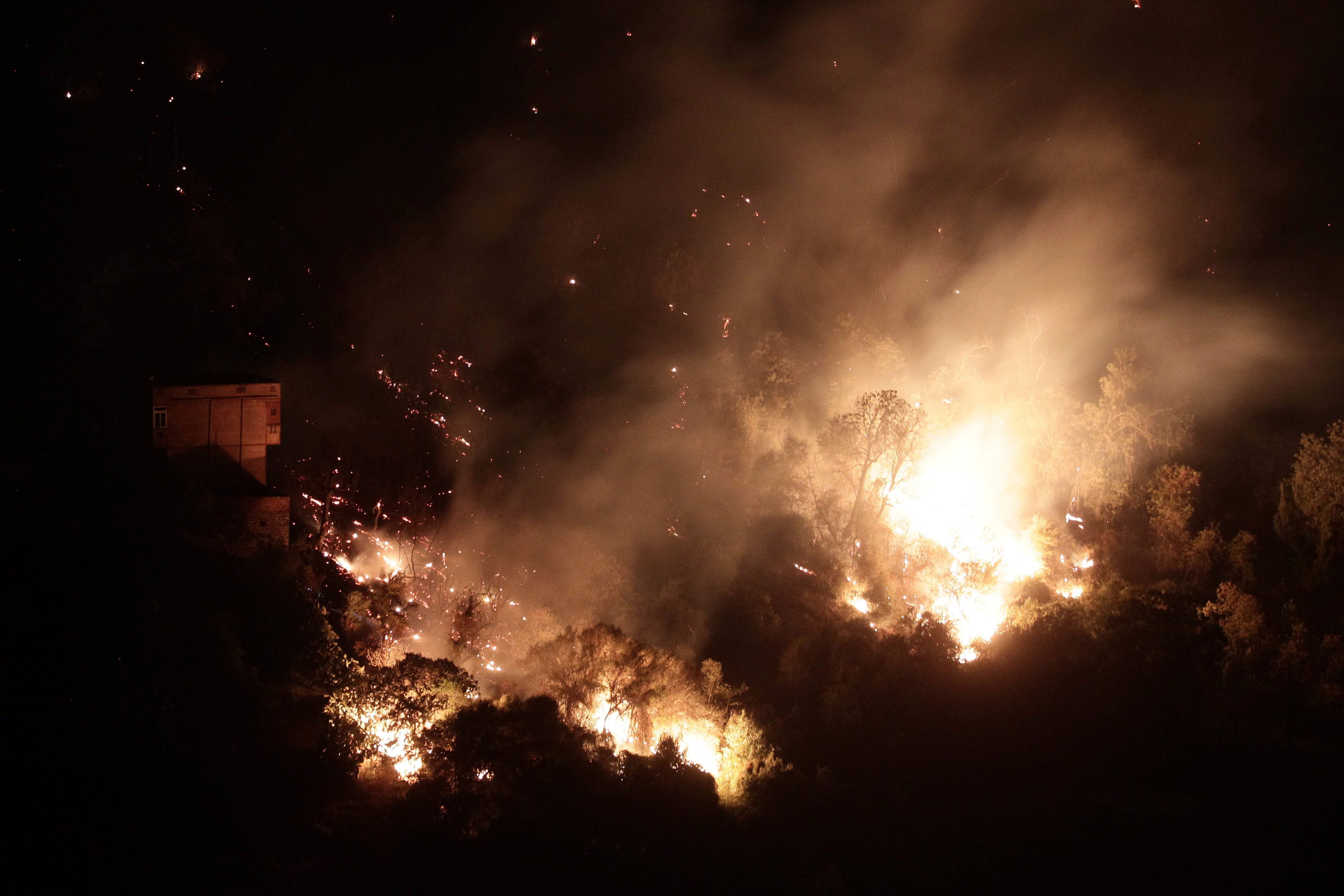Death toll up to 65 in Algeria wildfires; nation to mourn
The death toll in fires ravaging mountain forests and villages in Algeria’s Berber region climbed on Wednesday to 65, including 28 soldiers

Your support helps us to tell the story
From reproductive rights to climate change to Big Tech, The Independent is on the ground when the story is developing. Whether it's investigating the financials of Elon Musk's pro-Trump PAC or producing our latest documentary, 'The A Word', which shines a light on the American women fighting for reproductive rights, we know how important it is to parse out the facts from the messaging.
At such a critical moment in US history, we need reporters on the ground. Your donation allows us to keep sending journalists to speak to both sides of the story.
The Independent is trusted by Americans across the entire political spectrum. And unlike many other quality news outlets, we choose not to lock Americans out of our reporting and analysis with paywalls. We believe quality journalism should be available to everyone, paid for by those who can afford it.
Your support makes all the difference.The death toll in fires ravaging mountain forests and villages in Algeria’s Berber region climbed Wednesday to 65 people, including 28 soldiers, as the president declared a three-day mourning period this week to honor the lives lost.
The Civil Protection authority announced the rising number of victims, up from 42 on Tuesday, including 25 soldiers.
President Abdelmadjid Tebboune said his North African nation would enter a three-day period of mourning starting Thursday that would include suspending all government activity except for actions of solidarity.
Dozens of fires began devouring forested mountainsides in the Berber region of Kabyle, east of Algiers the capital, on Monday, destroying village homes, olive tree orchards and animals that provide a livelihood for the region.
The forestry director in Tizi-Ouzou, the regional capitol, said Wednesday that 18 fires remain active in the region. Dozens of fires burned elsewhere across the north, but their deadly force was concentrated in Kabyle.
There was no official explanation of the high death toll among soldiers but photos in Algerian media showed soldiers in their army fatigues with no protective firefighting clothing.
The prime minister and interior minister both said Tuesday that arson was suspected in the Kabyle blazes, despite a heat wave and high winds fanning the flames.
Citizens, mainly youths, are helping to supply residents in need and “caravans of solidarity” were heading to Tizi-Ouzou, the online media outlet TSA reported.
North Africa has been sweltering under searing temperatures, including in neighboring Tunisia where scattered fires in the east were reported. Algeria’s National Meteorology Office reported high temperatures were expected through Thursday in nearly a dozen wilayas, or regions, including around Tizi-Ouzou. In some places, the thermometer was forecast to hit 47 degrees Celsius (116 degrees Fahrenheit).
Climate scientists say there is little doubt that climate change from the burning of coal, oil and natural gas is driving extreme events, such as heat waves, droughts, wildfires, floods and storms. A worsening drought and heat — both linked to climate change — are driving wildfires in the U.S. West and Russia’s northern region of Siberia. Extreme heat is also fueling the massive fires in Greece and Turkey.
___
Follow all AP stories on climate change issues at https://apnews.com/hub/climate.